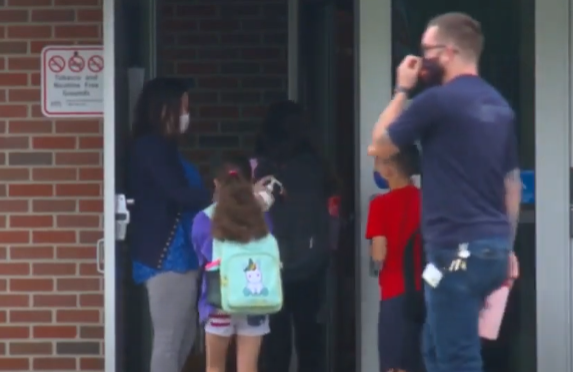CDC does not follow the science on pandemic

The Centers for Disease Control (CDC) has flip-flopped on the science of mask-wearing and stopping the pandemic’s spread since it was put in charge of managing the pandemic policy for the country.
Public trust has eroded significantly during the past two years because the CDC’s bureaucrats were exposed as incompetent and incapable. There are three main reasons showing how the CDC did not follow the science during the pandemic:
First, the CDC changed its mind on the length for a quarantine period, which had the Left blow blood vessels in their brains. Previously, the isolation and quarantine period after exposure and infection to the coronavirus was set at ten days. But the CDC shortened the quarantine period to five days for the asymptomatic and advised wearing masks when among others.
The bureaucrats also changed their overall quarantine guidelines for vaccinated people. They previously said that fully vaccinated people do not need to quarantine after exposure to the virus. Now, they said that those who received a booster shot can skip quarantine and should wear a mask for ten days.
The CDC said that science necessitated these changes because virus transmission typically occurs 1-2 days before symptoms occur and about 2-3 days after symptoms develop.
However, if the CDC knew and interpreted the data correctly, it would have known this much earlier. These relaxed recommendations should have been implemented earlier in order to keep people safe and keep people working.
Second, the CDC redid its figures on infection cases because it realized that it miscounted millions of alleged infection cases. On December 18, 2021, it said that 73% of new positive virus cases were linked to omicron. Then, three days later, the agency said that the estimate should have been 23%, which was a 50-point drop. In other words, the CDC goofed in estimating the spread of the omicron variant and showed it could not trust its own data projections.
By comparison, the delta variant made up 41% of new cases in the same time period. The CDC said that the medical community should focus on delta rather than omicron, based on their updated data projections.
The data projection adjustment did not instill confidence that even if the CDC had accurate data, that they would follow the science and make appropriate recommendations.
Lastly, the CDC’s cited data on mask mandates in schools in Arizona was flawed from the start. The CDC did not follow other organizations’ guidance on children wearing masks in schools, such as the much-maligned World Health Organization (WHO). The WHO said that children under age six should not wear masks in schools. But the CDC said that all children over two years old should wear masks in school.
CDC’s director, Rochelle Walensky, said that a study backs their aggressive stance on mask-wearing for children. The study that she cited concluded that public schools that did not have mask mandates were 3.5 times more likely to have coronavirus outbreaks than those that did.
Yet the study itself was problematic. The study observed 1,000 public schools in Arizona’s Pima and Maricopa counties, but it did not match school calendar years and actual in-class instruction schedules. It did not account for schools that opened in August compared to July, which means that some schools were open for fewer days than other schools in the study. In short, the data set was flawed because there was no uniform start dates for the observed schools and makes drawing a general and consistent conclusion much more difficult.
There were also issues on how the study reported virus outbreaks, a lack of control variables related to vaccination status of students and staff members, and not accounting for online-only schools compared to in-person schools.
Ultimately, the science and data prove that the CDC is more wrong than right during the pandemic.




